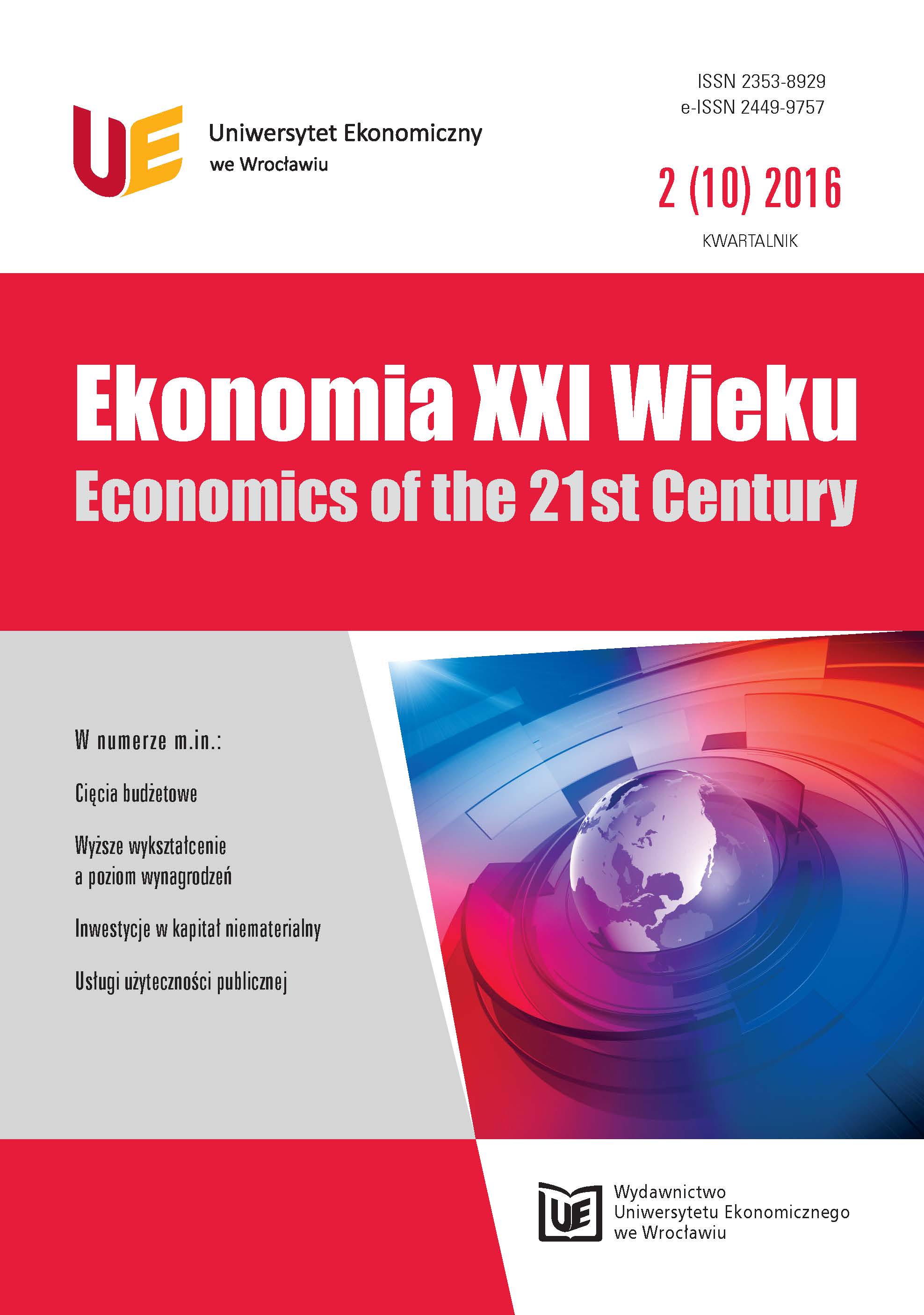Inwestycje w kapitał niematerialny w gospodarkach na średnim poziomie rozwoju
Intangible capital investment in developing economies
Author(s): Łukasz Cywiński, Rusłan HarasymSubject(s): Economy, National Economy, Business Economy / Management
Published by: Wydawnictwo Uniwersytetu Ekonomicznego we Wrocławiu
Keywords: intangible capital; economic growth factors; innovativeness of countries
Summary/Abstract: Structural change of the global economy involving a transition from manufacturing to knowledge-intensive industries makes the classic growth factors dwindle in favor of factors that are based on human capital and innovation. This paper presents the results of the measurement of intangible capital in Poland in 1995-2013 and the comparative analysis of countries from Central and Eastern Europe. It also presents the results for selected intermissions of time that are corresponding with institutional changes and adjustment reactions – 2005 corresponds with entry to the EU and 2010 with the adjustment to global downturn. The research presents a measure of intangible assets in Poland up to 2013 and compares the results with available data for other European countries (see: INTANINVEST project). This step was made to check whether Polish economy was led by the following pattern – high level of intangible capital stimulates economic development measured by the GDP. The results of the analysis made it possible not only to achieve the abovementioned goal but it has also multiple other applications. For instance it adds to the discussion about the “trap of medium development” and the role of Foreign Direct Investment (FDI) in shaping structural changes of Polish economy. The measurement of intangible capital in Polish economy presented in the article was based on the methodology presented by Corrado, Hulten and Sichel [2006] – which was later applied in the INTANINVEST project by the Piekkola’s [2011] team. This allowed for the abovementioned comparative analysis of Poland and selected European countries. The results indicated that the Polish economy absorbed technology and knowledge, but created only handful of innovations. It is not a knowledge-based economy, but it only imitates innovations. The transition to knowledge-based economy is furthermore neither advanced by growth strategies based on increasing spending on R&D from public funds (Lisbon strategy) nor the quality of investment climate.
Journal: Ekonomia XXI Wieku
- Issue Year: 2016
- Issue No: 10
- Page Range: 89-102
- Page Count: 14
- Language: Polish

